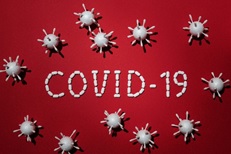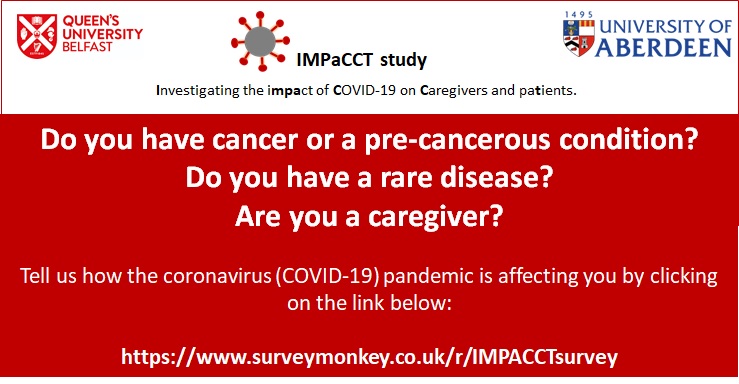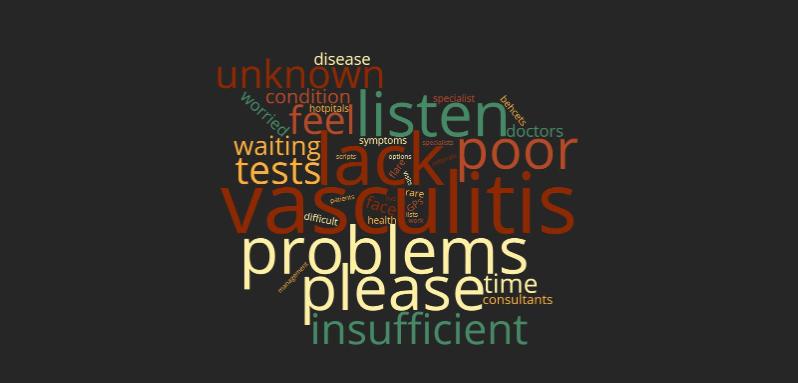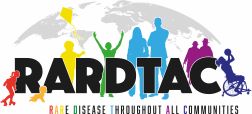Research

We conduct a range of research projects from comprehensive laboratory projects to health services research, and patient experience and outcomes measures. Patient and public input is essential to our rare disease research - several projects were initiated by patients and / or patient organisations. We have an active, dynamic research group and look forward to helping make things better for individuals living and working with rare diseases; we enjoy working with international colleagues to improve knowledge and understanding for rare diseases.
A selection of local rare disease research projects - coming soon
Please do contact us if you wish to see your project listed here

We are evaluating the impact of COVID-19 on groups who are supporting people with rare diseases during the COVID-19 pandemic.
There will be a £50 Amazon voucher provided to a single entry drawn at random from eligible participants.
About this project
We are keen to understand how groups that are supporting people with rare diseases have been affected by the COVID-19 pandemic. Through this project we hope to identify strategies that are working well for these groups as well as common issues to explore where the development of further resources would be most effective during this COVID-19 pandemic. This short survey is for individual or collaborative groups (including charities, voluntary, and community groups) to help evaluate the impact of COVID-19 on groups who are supporting people with rare diseases during the pandemic. The role of the charity / volunteer sector is recognised as being critically important in our society, particularly in helping minimise challenges at this difficult time. We appreciate and welcome your input to this evaluation. If you wish to provide further details and / or have any questions about this survey, please contact raredisease@qub.ac.uk using ‘COVID-19 Survey groups' in the subject line
Thank you to everyone who contributed. This project is now closed and we are summarising the results.
QR code for a quick link to the survey

PLEASE have your experiences counted by completing this survey: https://www.smartsurvey.co.uk/s/COVID19_RD_Groups/
Rare diseases are defined by the European Union as those individually affecting fewer than 1 in 2,000 individuals, cumulatively affecting 1 in every 17 persons at some point in their lives. It is estimated that 350 million people globally have a rare disease with more than 8,000 rare diseases recorded in the literature. We know that being diagnosed with a rare disease can lead to a significantly reduced lifespan and quality of life for patients and their families; accurate diagnosis and early intervention significantly improves long term outcomes for rare disease patients. Many individuals with a rare disease will regularly attend more than 5 medical professionals; many of these consultations have been delayed as a result of health and social care measures implemented for coronavirus. Access to clinical trials and medications has been severely curtailed in recent weeks. Individuals living and working with rare diseases consistently describe challenges accessing accurate information about individual rare diseases and accessing appropriate services; anecdotally this has been exacerbated in recent weeks due to the coronavirus (COVID-19) pandemic. Individuals living with rare conditions often describe feeling ‘isolated’ and ‘dismissed’ so effective communication and provision of information is critical.
We are keen to hear your views on how COVID-19 is impacting your group's activities
We aim to:
- To perform an online survey with individual or collaborative rare disease groups.
- To explore the challenges rare disease groups have faced during the COVID-19 pandemic.
- To discover the impact COVID-19 has had on the services these groups are able to provide.
- To identify the long-term implications COVID-19 will have on such groups.
- To discover where resources need developed further to help groups support those with a rare disease at this time.
What are the advantages? By taking part in this study you will be helping to identify were resources should be developed to most effectively support rare disease charity groups. We recognise the exceptional ongoing work from existing groups and by agreeing to take part in this study we hope to build resources further. There will be a £50 Amazon voucher provided to a single entry drawn at random from individuals who wish to be entered into the draw by providing their email address in the last question.
How will the results be used?
Results from this project will be collated anonymously and used to help improve the accessibility of resources and addressing the needs of individuals affected by rare disease(s) in Northern Ireland.
If you wish further information, our information leaflet and associated privacy document is available here:
Charity COVID Information Leaflet
The study was reviewed and approved by the Queen’s University of Belfast, MHLS Faculty Research Ethics Committee (MHLS 20_72).
If you would like further information on rare disease components please contact the Queen’s University rare disease team.

Researchers at Queen’s University Belfast and the University of Aberdeen, invite you to take part in an online research study investigating the impact of the COVID-19 (coronavirus) pandemic on caregivers and patients with cancer, pre-cancerous conditions and rare diseases.
COVID-19 (a coronavirus) is an infectious disease caused by a virus. COVID-19 was first identified in patients in Wuhan province in China at the end of 2019. From there the virus has spread to other countries worldwide with the World Health Organisation declaring it a pandemic on 12th March 2020. This virus has had a major impact on many people with anecdotal reports suggesting patients and carers are often struggling to manage. We are particularly interested in hearing views from people living or working with cancer, pre-cancerous conditions, and / or rare diseases.
QR code for a quick link to the survey

For people with a rare disease: PLEASE have your experiences counted by completing this survey: https://www.surveymonkey.co.uk/r/IMPACCTsurvey
Rare diseases are defined by the European Union as those individually affecting fewer than 1 in 2,000 individuals, cumulatively affecting 1 in every 17 persons at some point in their lives. It is estimated that 350 million people globally have a rare disease with more than 8,000 rare diseases recorded in the literature. We know that being diagnosed with a rare disease can lead to a significantly reduced lifespan and quality of life for patients and their families; accurate diagnosis and early intervention significantly improves long term outcomes for rare disease patients. Many individuals with a rare disease will regularly attend more than 5 medical professionals; many of these consultations have been delayed as a result of health and social care measures implemented for coronavirus. Access to clinical trials and medications has been severely curtailed in recent weeks. Individuals living and working with rare diseases consistently describe challenges accessing accurate information about individual rare diseases and accessing appropriate services (); anecdotally this has been exacerbated in recent weeks due to the coronavirus (COVID-19) pandemic. Individuals living with rare conditions often describe feeling ‘isolated’ and ‘dismissed’ so effective communication and provision of information is critical.
We are keen to hear your views on how COVID-19 is impacting your day-day life.
Caregivers of people with a rare disease: PLEASE have your experiences counted by completing this survey: https://www.surveymonkey.co.uk/r/IMPACCTsurvey
Many patients with rare diseases require support from formal and informal caregivers. Recent research by our team has revealed that carers often do not prioritise themselves and consequently find themselves in difficult circumstances when others are depending on them for care needs (McMullen et al., unpublished). We have developed a cross-sectional support leaflet for carers of people with a rare disease (). In the midst of this coronavirus (COVID-19) pandemic, carers have voiced a number of concerns to the research group including where to get specific support and information, financial concerns, psychosocial concerns, ensuring patients have sufficient care they need at this time, and having appropriate provision of personal protective equipment.
We are keen to hear your views on how COVID-19 is impacting your day-day life.
The study was reviewed and approved by the Queen’s University of Belfast, MHLS Faculty Research Ethics Committee (MHLS 20_52).
Led by Prof Lesley Anderson (with a focus on cancer), and Dr Charlene McShane (with a focus on pre-cancerous conditions), the survey also includes information about rare diseases (Dr AJ McKnight) and those who provide care for them (Dr AJ McKnight & Dr Olinda Santin).
If you would like further information on rare disease components please contact the Queen’s University rare disease team.

Many people with a rare disease are cared for by a family member. This can be a challenging role at times due to the nature of the disease and the unique, often complex, care required. Because they may not be diagnosed with the rare disease themselves they rarely take the time to consider their own needs. Neglecting to look after themselves can have devastating consequences on their own health which directly impacts the person they care for. It is therefore important that strategies are put in place to ensure that carers take the time they need to care for themselves and avail of any support offered to them from the health service, charities or support groups. This project will explore challenges carers face when looking after someone with a rare disease and identify how they could be better supported in this role.
A rare disease is defined by the European Medicines Agency as a ‘life-threatening or chronically debilitating’ condition which affects no more than 5 per 10,000 people in the EU. In the United States, a rare disease is defined as a condition that affects fewer than 200,000 people within the American population at any given time. Although individually rare, collectively rare diseases are much more common with 1 in 17 persons affected in their lifetime.
The UK strategy for Rare Diseases emphasised the need for improvement of the coordination of care, diagnosis, treatment and patient empowerment. By 2020, it aims to ‘improve the lives of all those with rare diseases in the UK’. The NI Rare Disease Implementation Plan (2015) highlighted the need for better coordination of care, the empowerment of patients, better diagnostics, and earlier disease interventions.
The vision of the NI Rare Disease Implementation Plan (2015) includes:
a) the delivery of effective interventions and support to patients and families quickly, equitably and sustainably;
b) offering a patient-centred, coordinated approach to treatment services, specialist healthcare and social care support which takes into account the needs of patients, their families and others who provide essential support.
Many people with a rare disease are cared for by a family member. Given the nature of such diseases, caring for these individuals can be a challenging role. Due to a low prevalence and lack of expertise for many conditions, rare disease patients are often forced to become knowledgeable about their own disease state. They become ‘expert patients’ alongside their carer as they seek an empowering and collaborative approach with their clinicians. This is a shift from the traditional patient-doctor relationship with each party revising their role and expectations which presents many challenges.
It has become evident that carers often fail to prioritise themselves, putting their own health at risk. Neglecting to look after themselves can have devastating consequences on their own health which directly impacts the person they care for. From ongoing research within the QUB rare disease team there have been hints that there could be significant merit in networking with other carers experiencing circumstances as themselves.
The main purpose of this project is to explore the challenges carers face when looking after someone with a rare disease and identify how they could be better supported in this role.
This project is an exploratory study involving a survey with carers to gain an understanding of their experience of caring for someone with a rare disease. An online survey will be completed by those who care for someone with a rare disease. The survey will ask questions about the challenges they face, the services they access, their experience with the health service as well as aiming to form a picture of the type of support that would be useful for them going forward.
Please Take This Survey, which has been granted ethical approval (QUB Faculty of Medicine, Health, and Life Sciences reference MHLS_19_08) . It will be advertised via the Northern Ireland Rare Disease Partnership website and Facebook page. A workshop will be facilitated in November 2019 in collaboration with the NIRDP which will focus on carers. This will be an opportunity to promote the study as well as supporting the NIRDP in their ongoing work. To be eligible to participate in this online survey participants must be over 18 years old and currently be caring for someone with a rare disease.
Through this project it is hoped that general awareness will be raised of the issue of rare disease as well as improving situations for those who care for the individuals living with such conditions.

Obesity is a leading public health challenge however many healthcare professionals feel poorly trained to address it.
Implementing effective treatment strategies is a challenge.
This project will examine effective training methods for overweight and obesity intervention in clinical educational programmes. Through this research the knowledge and skills set required to enable health care professionals to work effectively will be identified. Surveys and focus groups will be conducted to gain an understanding of current undergraduate medical degree curriculum regarding weight management and treatment. The intent is to gather a greater understanding of the level of care and information currently given to patients and identify areas where medical professionals are lacking in their care.
Obesity is often referred to as the leading health challenge facing our population. The majority of adults in the United Kingdom (UK) are either overweight or obese (64%); 1 in 5 children are obese. As it is a leading cause of preventable disease it has received a lot of attention from policy makers, politicians, the media and the public in recent decades however many healthcare professionals feel poorly trained to address it. Obesity is a result of complex interactions between behavioural, environmental and genetic factors and is a major risk factor for other chronic diseases such as hypertension, type 2 diabetes, some cancers, polycystic ovary syndrome, sleep apnoea; osteoarthritis; fatty liver disease; kidney disease and a number of other illnesses. Adverse effects of carrying excess weight on health, wellbeing and life expectancy understood well. What is less well understood is how we can implement effective treatment strategies in practice. The rise in obesity far exceeds the abilities of the National Health Service (NHS) limits to treat obesity. Intervention must start at education of medical practitioners. A manageable evidence-based behavioural intervention strategy could improve the success of weight management and treatment within primary care. New strategies are coming into play in Northern Ireland (NI) from the Chief Medical Officer to tackle childhood obesity by cutting percentages in half. Focus must be put on overweight and obesity in childhood to limit the further development and likelihood moving into adulthood. If obesity is tracked before adulthood the likelihood and severity of developing fatal diseases can be reduced.
The treatment for obesity must be provided by health care professionals who are informed, sensitive and competent. Obesity treatment is a very diverse and complex area. The NHS has invested significant amounts of money into a number of weight management and treatment strategies over the years under the premise that weight management can be achieved if done properly. However, these strategies have not been as successful hoped. This study aims to:
- Examine effective training methods for overweight and obesity intervention in clinical educational programmes.
- Examine the need for intervention in education, surrounding obesity.
- Examine some current strategies and review practice.
- Ascertain the knowledge and skills set required to enable health care professionals to work effectively; identifying roles and responsibilities of different health care professionals in the best weight management strategies.
- Investigate how best to engage patients and enable change.
- Gain an understanding of current undergraduate medical degree curriculum, the level and depth of education medical students receive surrounding weight management and treatment. This will be achieved by surveys aimed at multiple groups - practicing doctors, Queen’s University undergraduate medical students and patients. The intent is to gather a greater understanding for the level of care and information currently given to patients and identify areas where medical professionals would appreciate support in their care of overweight or obese patients.
For patients: Obesity treatment: a review of current practice in Primary Care and training in undergraduate medical educational programmes
For medical students: Obesity treatment: a review of current practice in Primary Care and training in undergraduate medical educational programmes - for undergraduate students
If you would like further information please contact the Queen’s University rare disease team.

Vasculitis is a group of rare, auto immune, systemic diseases where the immune system attacks the blood vessel walls. Vasculitis is typically treatable, but often has a complex clinical presentation and variable disease course that makes managing this condition challenging in routine healthcare settings. For many individuals, living with vasculitis is an ongoing, life-changing challenge that significantly affects their day-day experiences. Researchers are trying to improve the care for people with vasculitis from diagnosis through to the effective management of the condition. This patient-initiated study will give vasculitis patients and healthcare professionals a chance to express their opinion on vasculitis care.
Vasculitis is a rare disease causing inflammation of the blood vessels, arteries, veins or capillaries. It affects people of all ages and presents many challenges for those who care for them. Incidence and prevalence of these diseases in Northern Ireland (NI) is difficult to assess as there is no vasculitis registry. There is no definitive diagnostic test for most types of vasculitis and untreated disease may lead to irreversible organ damage and become life threatening. There is no cure, acute treatment often has severe side effects, and ongoing management involves complex care management pathways. The treatments used depend upon which blood vessels and organs are affected, as well as how much body tissue is affected, however, in most cases, drug treatment is needed to control the disease and its symptoms and to stop or limit the damage caused.
Northern Ireland does not currently have a ‘vasculitis’ specialist consultant or healthcare team, and there are no statistics available for incidence, prevalence, or patient outcome data for vasculitis in Northern Ireland. Feedback in NI revealed that some clinicians and patients have differing opinions on what support vasculitis patients require. It is important that evidence is gathered so that evidence-based medicine can be delivered and policy can be influenced where required, which may in turn improve the care for vasculitis patients.
The aim of this survey was to gather evidence based on patient experiences that may improve awareness of the various vasculitis diseases, to gather evidence to help reduce the time taken for a diagnosis, and to move towards more efficient, effective management of vasculitis in NI. Through an online patient-focused survey this study will give vasculitis patients in NI a chance to express their opinion on the treatment they receive and the effect it has on living every day with this condition. A complementary survey was developed in parallel to explore the perceptions of healthcare professionals in NI for vasculitis treatment, information, and care.
For rare diseases such as vasculitis, collaborative working throughout clinical research projects such as this is essential to identify needs and improve patient outcomes. This survey was designed by an iterative process with informed input from patients, patient charities, healthcare practitioners, policy makers, and academic researchers to gain an understanding of the care patient's currently receive and how they would like this to change. The survey addresses issues such as: the process of diagnosis the patient experienced, what healthcare professionals are involved in their care, investigating which symptoms patients experience and how these can be dealt with best, discovering what treatment vasculitis patients currently receive and what they think of this treatment.
A web link to the survey was posted on social media on a recruitment notice, as well as promotion via the NIRDP and Vasculitis Ireland. To be eligible to participate in this online survey participants had to be a patient with vasculitis living in Northern Ireland aged 18 years or older.
The UK Rare Disease Strategy and the NI Rare Disease Implementation Plan require that no one with a rare disease should be disadvantaged by where they live, or the rarity of their condition; and specifically target improvement in education and training for healthcare professionals, and access to learning resources to enable better management of rare diseases and enhance best quality practice, especially in diagnosis, and care co-ordination.
This will be a major piece of ethically approved research which will be used to help make vasculitis care in NI more efficient, timely and effective.

Katie Kerr joined our team as a PhD student (2017-2020) researching 'multiomics' as a new approach to improve the diagnosis and treatment of rare diseases.
Katie is working within our collaborative, multidisciplinary team, which includes input from clinical, academic, and industrial colleagues, as well as patients, carers, and rare disease support groups.
Getting an accurate diagnosis is a real challenge for rare diseases.
Patients can wait several years to receive an accurate diagnosis, which impedes upon the quality of support and treatment they receive. In fact most patients face at least one wrong diagnosis before finally obtaining the correct one. As most rare diseases have a genetic cause, advances in genomic research over the past decade has greatly improved our ability to provide a diagnosis compared to traditional diagnostic methods. For example UK based The 100,000 Genomes Project (100KGP) has used a technique called whole genome sequencing to provide a diagnosis to rare disease patients; by looking at the sequence of a rare disease patients entire genetic material and comparing this to unaffected participants in order to identify changes which may be responsible for causing the rare disease (click here to find out more about the 100KGP).

However looking solely at an individuals genetic sequence isn't enough to give everybody a diagnosis, with diagnostic rates from whole genome sequencing sitting at about 30-50%!
There is a novel approach that may provide more answers...but needs more research...
That's where my research comes in. Where whole genome sequencing by the 100KGP has been unable to provide a definitive molecular explanation for a patients rare disease, I am integrating additional multi-omic analysis. Specifically I am looking at integrating the genetic information with transcriptomic data (changes in how a gene is expressed) and epigenomic data (non-sequence level DNA modifications such as the chemical methylation), to increase diagnostic yield for individuals living with a rare disease. By going beyond genomics, we are able to get a better idea of the wider molecular picture in an individual with a rare disease, and therefore increase our chances of providing a patient with a diagnosis.
It's a holistic approach to personal medicine! This ultimate goal of this PhD project is to lead to the development of a pipe-line which can be implemented when a patient presents with a suspected undiagnosed rare disease in Northern Ireland.
This project is supervised by Dr AJ McKnight, Dr Helen McAneney & Dr Cheryl Flanaghan.
For more information please contact us
If you would like further information please contact the Queen’s University rare disease team.

